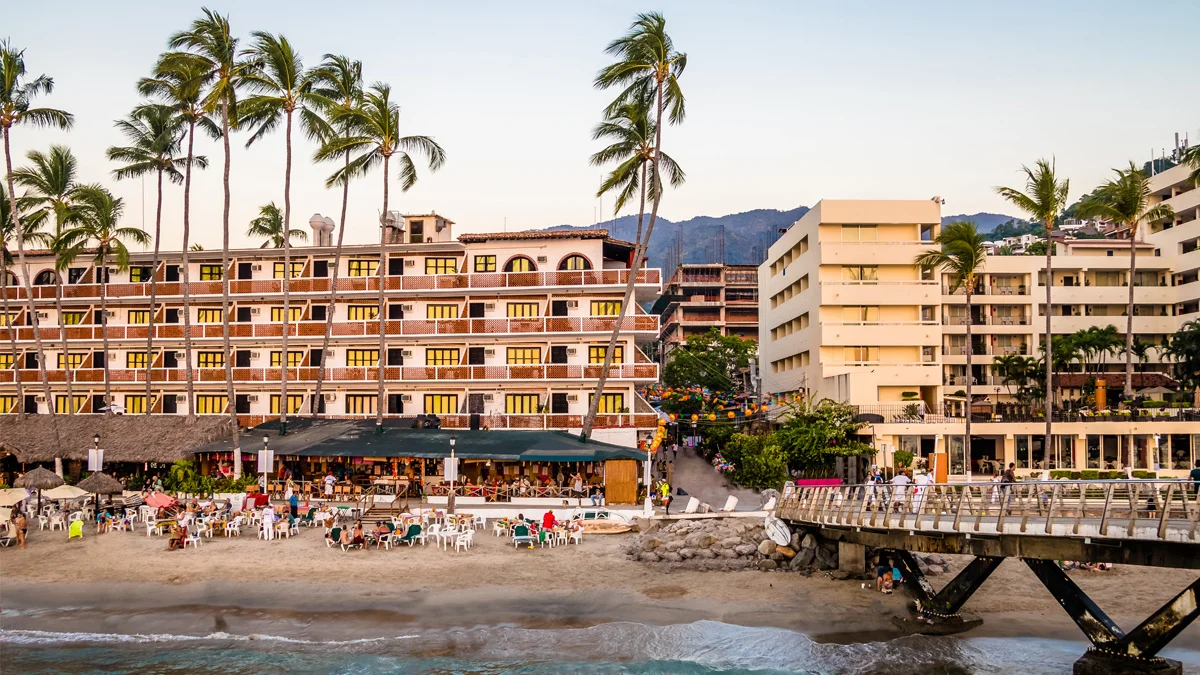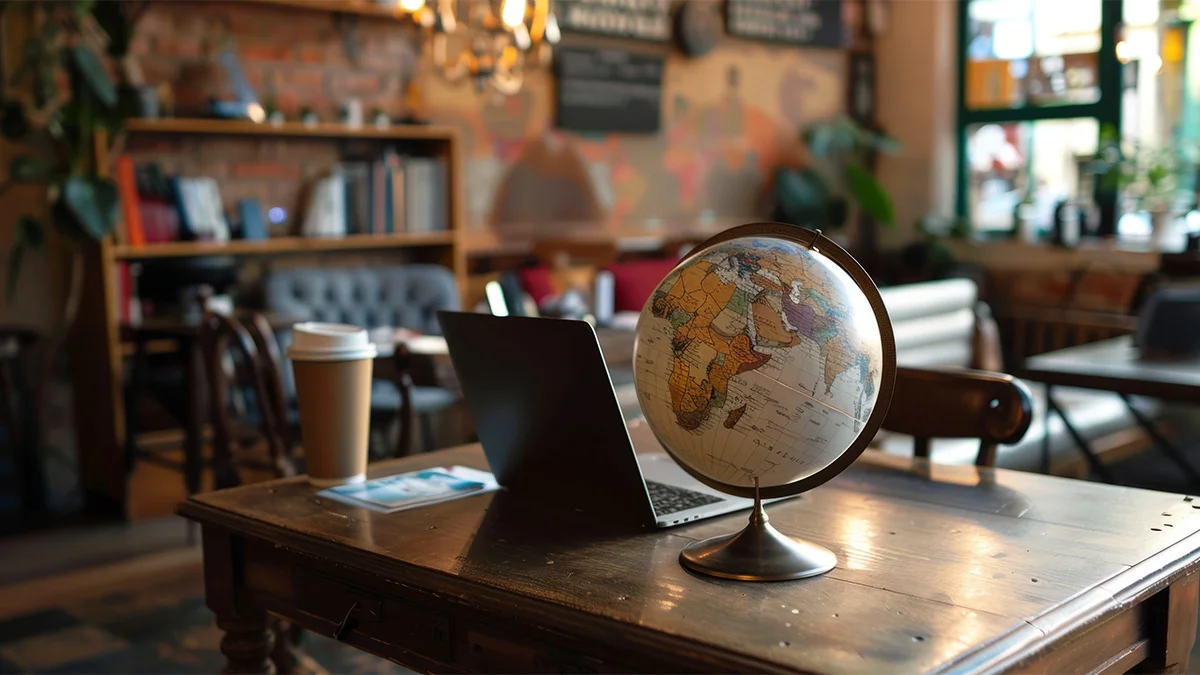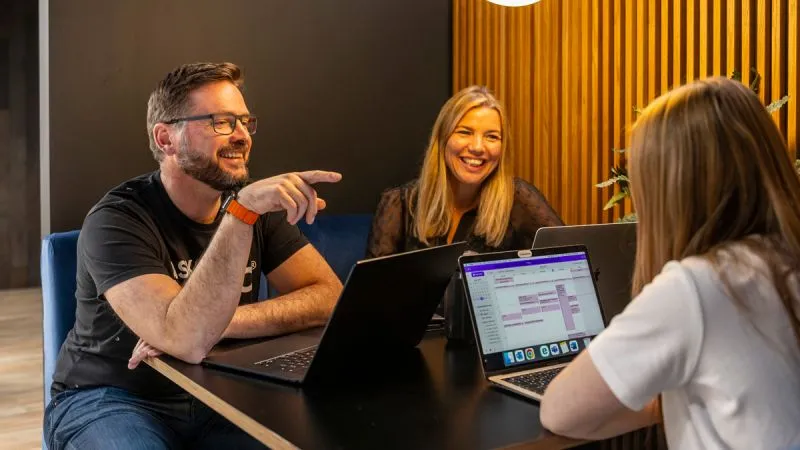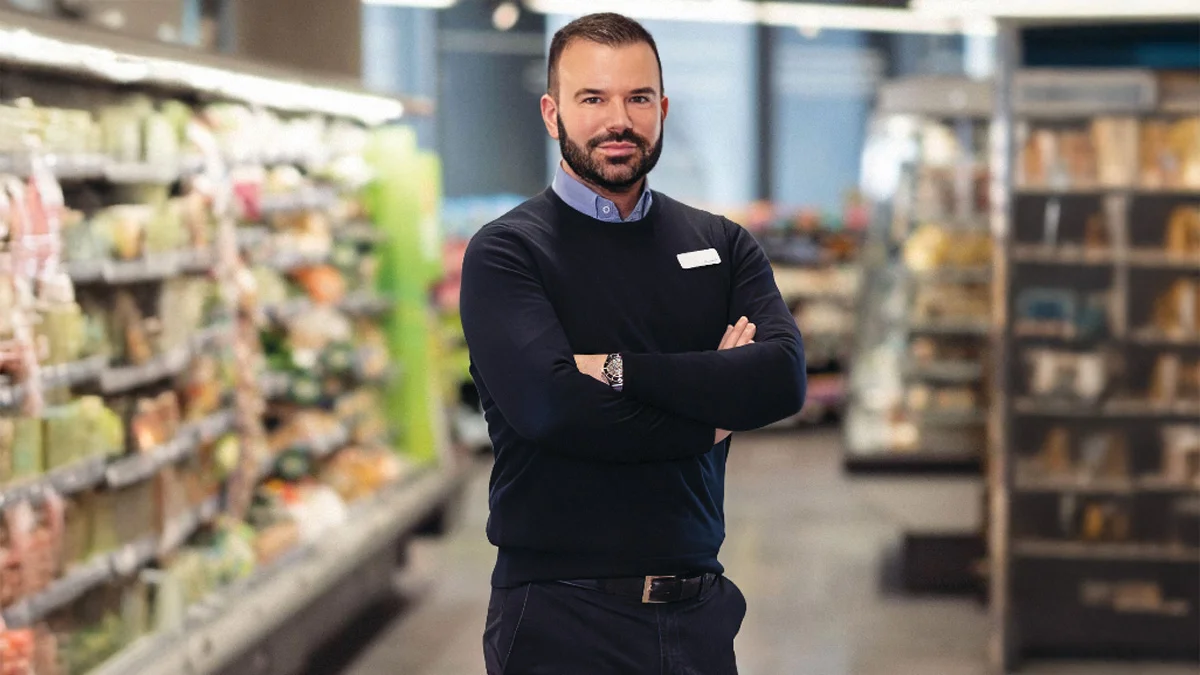
We spoke to Tim Hentschel, co-founder and CEO of HotelPlanner, about the hospitality industry, scaling a company, and much more.
Before we start, can you tell us a little about HotelPlanner and your role in the company?
I launched HotelPlanner in 2003 in San Diego with my co-founder & CIO John Prince to help solve the group travel booking challenge that existed in our industry at that time. Back then, group bookings were needlessly complex and time-consuming, often requiring multiple phone, email or fax negotiations with group sales managers that could take weeks.
HotelPlanner streamlined the entire group travel search and booking process. So much so that by 2006, Priceline tried to acquire us. We politely declined because John and I had a long-term vision for what the company could become, and we weren’t ready to let go of the reins. We still aren’t. We’re proud to be celebrating 20 years in the business this year.
John still manages our proprietary, patent-pending AI tech stack almost entirely in-house from our global headquarters in West Palm Beach, FL and I focus on growing our UK and European footprint from our London office.
What got you into the hospitality industry?
I’m a 3rd generation hotelier so I grew up very immersed in the world of hospitality, hotels, and large tour groups that my parents organised with their company. I even had a part-time job as the hotel Night Auditor, a role that exposes you to every aspect of running a hotel.
That was an incredibly valuable job for me to learn the ropes early on. I was fortunate to be accepted to the Cornell University School of Hotel Management in Ithaca, NY, considered one of the best hotel schools globally, of course, I’m biased. Cornell ‘Hotelies’ go through a rigorous curriculum that includes all aspects of hotel management and then fun classes like Introduction to Wines & Spirits, (Cornell’s most popular course and also its most failed course because it’s actually a hard class).
We also had a class that required us to create and run our own original restaurant concept for a night. After Cornell, I thought I needed some experience on Wall Street to learn all I could about how and why companies grow and succeed, and why some companies eventually fail.
For two years, I was an equity analyst evaluating the business models of a wide range of companies, including some in travel and hospitality. All of those early experiences led me to launch HotelPlanner in 2003 when I was just 24.
How has the travel and hospitality industry changed post-Covid?
In countless ways, but the biggest change is probably that every traveller is now up for grabs in terms of customer loyalty. It seems like every hotel, airline, online travel agency, and even gym chains and restaurants have all launched or re-branded their loyalty programmes.
Given the unprecedented demand for travel, we’re likely to see through the end of this decade, our entire industry globally is in fierce competition for business. It’s a red ocean out there for sure and there will be winners and losers.
In the Online Travel Agency vertical alone, we’ve seen dozens of new entrants. The other big change is that travellers now expect much better service and support that’s customised and personalised to meet or exceed their unique travel needs and expectations. As such, with the introduction of
ChatGPT and other Generative AI tools, our industry is in the midst of a ‘Wild West’ period as companies are working feverishly to release their customised AI tool to help create a more frictionless experience for travellers, from search & booking support to recommending travel itineraries.
What advice do you have for entrepreneurs who can expect an influx in traffic over the holiday season?
I’ve published a handful of original articles in the past few years for young entrepreneurs that cover the waterfront. I’ll paraphrase myself by saying that successful entrepreneurs are able to transform tough times into opportunities and strategic wins.
Whether it’s the busy holiday season or an off-season when revenues are down, business challenges are opportunities in disguise to launch or expand your business when markets are down, or when your competitors are distracted.
When you go out on a limb and launch or expand a business, you’re going surfing. And when you go surfing, some waves will beat you up and others will carry you forward. The key is knowing when to duck a wave and when to ride one. Always be ready for change, for Black Swan events that will force you to change your business model, and for new competitors to emerge, because they always do. Ask Kodak.
What’s your opinion of the rising trend of ‘bleisure’, as in turning a business trip into one of pleasure?
I think it’s great for two reasons. It’s good for our business as travellers extend their hotel stays, and it’s also strengthening families. Let me explain. When a business traveller can extend their Monday – Thursday trip through the weekend, usually with a discount, then they are much more likely to invite their significant other and/or their children to join them for a mini-holiday. That’s good for families.
Second, the lines between business and leisure travel have blurred so much since the pandemic that I wonder if the term will soon become meaningless. So many travellers are now tacking on a fun leisure day or two at the end of their business trip, or perhaps working part-time whilst on holiday.
That said, business travel is the slowest category to recover from the pandemic, and once fully rebounded in the next year or two, it will have a lower baseline because of the rise in remote and hybrid events. And we all know that when the economy isn’t doing well, business travel tends to get curtailed.
What is the gig economy and how can the travel industry take advantage of this?
The Gig Economy has been around for decades, but the trend has really taken off like a rocket ship since the pandemic as workers have looked for more remote, flexible, and self-directed opportunities.
The Gig Economy are the millions of people who work as independent contractors for multiple companies or for themselves, work part-time or remotely as they wish, and can dial up or down their work opportunities as their schedule allows. (Must be nice!) HotelPlanner was the first and only Online Travel Agency (to our knowledge) to outsource our inbound sales call centre to the Gig Economy. And our results have been stellar.
In the past three years, we have more than tripled our revenues. Our remote agents have much higher sales conversion rates and they enjoy the work a lot more than bartending or driving for Uber/Lyft. Thousands of our remote agents are making HotelPlanner their part-time or full-time gig work of choice.
What does the future of the travel industry look like?
Our industry is moving toward the goal of ‘Frictionless Travel,’ the idea that the entire travel journey, from search & booking to post-stay, can and should be less confusing, chaotic, and inefficient. The industry is pursuing a host of Generative AI solutions to foster a more frictionless travel experience, but we’re probably another 5-10 years away from AI tools becoming ubiquitous and universal.
Another trend we’re following closely is the rapid growth of the Extended Stay category, a global phenomenon. The rise of all-inclusive, luxury or bespoke travel is another post-pandemic trend to follow. Simply put, people are now prioritising travel and new experiences the way they prioritise health & wellness. That’s terrific for our business.
The companies that will survive and thrive in this uber-competitive market will focus on how to deliver personalised, customised, localised service offerings and support. Each traveller is unique and has unique wants and needs in their travel and accommodation experience. The industry will ‘Know Our Customer’ much better in the coming decade, down to what temperature, scent, lighting, and TV channel they want when they enter their hotel room.
The airlines will already know you prefer an aisle seat and a vegetarian dinner. The Online Travel Agencies will be able to recommend unique and detailed vacation itineraries to their customers based on previous travel history and your ‘traveller avatar.’ Stay tuned and try to keep up.
How did you scale your company?
My co-founder John Prince and I scaled our business slowly and strategically over time. We are proud to have started the company with just a small ‘friends & family’ fundraise, rather than the venture capital or private equity route. We didn’t want to be indebted to anyone, especially early on.
When Priceline and others came to acquire us in our early years, we had the foresight and vision to politely decline because we wanted to scale our company organically, not through artificial means or just by throwing money at it.
You have to build something unique that the marketplace needs, and then you can build a loyal customer and partner base over time. We’ve scaled organically over the past two decades, along with a few well-timed strategic acquisitions where we had strong operational synergies. And stay tuned in 2024 for a potential IPO announcement.
What attributes make a great business leader?
Leadership is an art and a science. Some people are born great leaders, some are developed over time or circumstance. Leadership is not the same as management. You inspire and lead people, you manage projects. Big difference. I believe in playing to people’s strengths, being loyal when deserved, and always thinking big.
An effective business leader needs to be the champion for his or her organisation. They need to know their people, their mission, their departments and teams, and not be afraid to ‘work the fryer’ so to speak. Spend time with your frontline workers so you truly understand the business from all angles. Learn from your mistakes and try not to repeat them. Have mentors across multiple industries, ages, and locations. Always be learning and growing your network. And remember to have fun too. Life is short. There’s no reason why being a great business leader can’t also be fun.
Related and recommended
Contestants from The Apprentice reveal the fundamental business lessons they learned from taking part in the TV show
From global talent pools to AI-powered documentation, a work-from-anywhere model is a new way of thinking about productivity, innovation and teamwork
The story of how cycling brought Business Leader member John Readman together with his co-founder and investors
Stuart Machin’s hands-on leadership has revived M&S, tripling its share price and reshaping its future, by obsessing over the details, from shop floors to staff message boards





